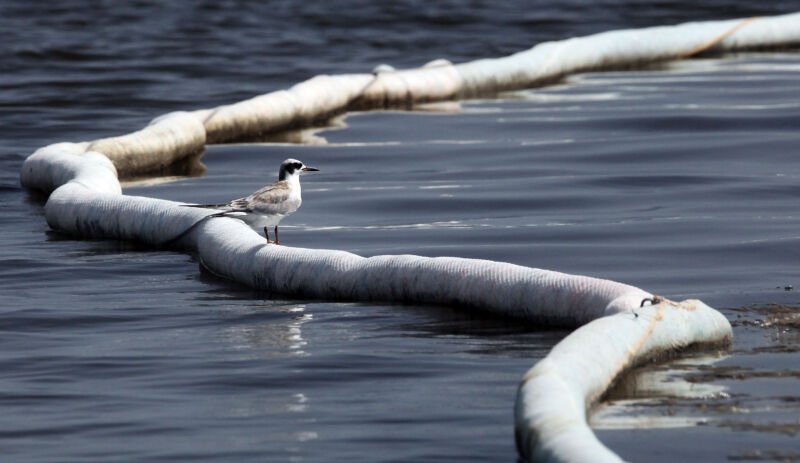-
 chevron_right
chevron_right
In a parting gift, EPA finalizes rules to limit its use of science
John Timmer · news.movim.eu / ArsTechnica · Tuesday, 5 January, 2021 - 23:52 · 1 minute

Enlarge / BARATARIA BAY, Lousiana - JULY 14: A young seagull rests on a boom used to contain the oil spill July 14, 2010. In the future, should this bird be killed by the oil, nobody could be held responsible. (credit: Mario Tama / Getty Images )
With the days counting down to the inauguration of President-elect Joe Biden, the Trump administration has been undertaking a series of actions that will make it more difficult for its replacements to reverse any of its policies or pursue new ones. This is especially true in the area of environmental regulations, where both the Environmental Protection Agency and the Department of Interior have recently issued decisions.
Over the last few days, Interior has issued new rules that will allow industries to kill migratory birds with impunity, and the department has moved ahead with plans to lease portions of the Arctic National Wildlife Refuge for drilling tomorrow. Meanwhile, the EPA has finally pushed through a new rule that could severely limit the ability of the agency to establish future regulations. The only small bit of consolation is that the EPA's final rule is less awful than some earlier drafts.
Only the science we like
The EPA's new rule , which will be formally published tomorrow, is an attempt to set additional standards for the evidence it considers when establishing new regulations for pollutants. In principle, the rule sounds great: it wants the data behind the scientific papers it uses to be made publicly available before it can be used to support regulatory decisions. In reality, the rule is problematic, because many of these studies rely on patient records that need to be kept confidential. In other cases, the organizations with the best information on some environmental hazards are the companies that produce or work with them, and they may not be interested in sharing proprietary data.

